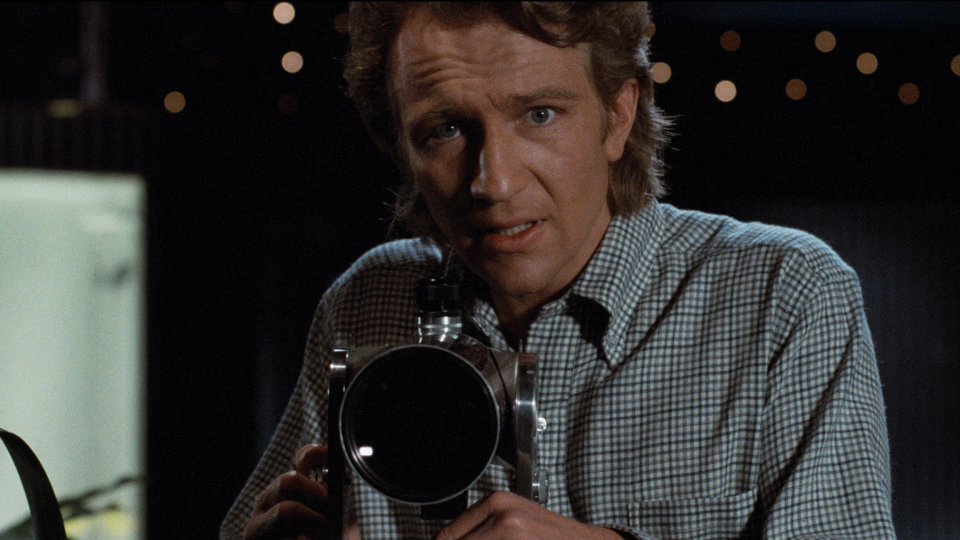Body Double

Craig Wasson plays a struggling actor who witnesses a murder while spying on his exhibitionist neighbor.
De Palma returns to the Hitchcock well with this sleazy mashup of Rear Window and Vertigo. Instead of Jimmy Stewart following Kim Novak down the streets of San Francisco, Wasson trails the object of his obsession through a Los Angeles mall and watches her try on lingerie. Instead of spying on mundane neighborhood goings-on, Wasson peeps on a nude woman. It might have worked with a stronger lead. But De Palma’s myopic focus on technical execution blinds him to the film’s weakness: Craig Wasson isn’t Jimmy Stewart.
Wasson tries. I suspect De Palma offered little character direction, but Wasson manages echoes of Stewart’s aw-shucks demeanor. But the key to Stewart’s character in both Hitchcock films lies in his being a capable man hampered by a weakness—either vertigo or a broken leg. Put these aside and he’s a tough cop or daredevil photographer. A brave man of action. We respond to this predicament, and Stewart convinces in the roles. Wasson’s character, however, proves incapable from the start. A forgettable sad-sack. The scenario he slips into proves interesting, but he does not.
Thus, moments of this turkey had me groaning or laughing aloud. How else to respond to Wasson’s emoting after chasing a purse snatcher into a tunnel? De Palma’s camerawork shines, but the scene borders on parody. As does the beyond-implausible scene that follows.
In fairness, two scenes shine. De Palma crafts a terrific shot where Wasson, racing to save his neighbor, encounters her large dog who tackles him to the floor. We then get a shot from Wasson’s POV, looking up as he fights off the dog mauling his arm. A large drill bit breaks through the ceiling above and blood pours through the hole. A terrific bit of stylized violence. The second scene comes when the film morphs into a video for the Frankie Goes to Hollywood anthem, “Relax”. De Palma nails the sleaze-camp tone perfect for the song, and lead singer Holly Johnson injects a much needed bit of charisma.
The tonal dichotomy between these highlights illustrates the film’s rollercoaster nature. Nice touches—such as Guy Boyd’s tone-perfect recreation of Wendell Corey’s character in Rear Window and the amusing end credit sequence—drown in a telegraphed plot fraught with forced drama.
The Indicator Blu-ray packs tons of extras. Perhaps they’ll offer insight into what went wrong.